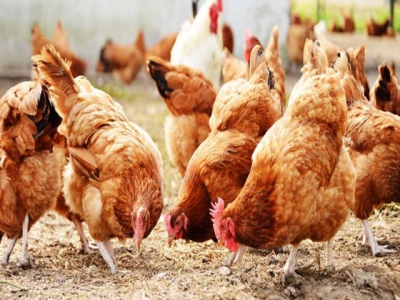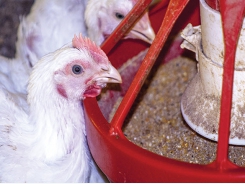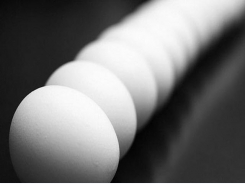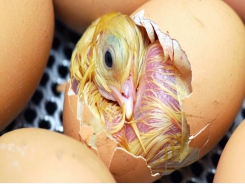Insect biomass conversion reduces food waste, creates animal feed

Soldier fly larvae plus rotting food waste make new recipe for sustainable fish and animal feed.
In a warehouse near Cambridge, U.K., shelves of trays teeming with maggots are munching their way through a meal of rotting fruit and vegetables.
While many may consider this unappetizing, these insects could become the sustainable food of the future — at least for fish and animals — helping reduce the reliance on resource-intensive proteins such as fish meal and soybean meal while also mitigating the use of antibiotics in the food chain, according to an announcement from the University of Cambridge in the U.K.
The company behind this idea is Entomics Biosystems, which was set up in 2015 by a group of students from the University of Cambridge with support from the Cambridge Judge Entrepreneurship Centre’s Accelerate Cambridge program.
“It’s one of those stories where we came together in a pub over a pint, talking about weird ideas,” chief executive officer and co-founder Matt McLaren explained. “The team has members from the department of biochemistry, from engineering, from the [Judge] Business School, so it really is a diverse skill set.”
According to the company, each year more than 1.3 billion metric tons of food are wasted globally, equating to around $1 trillion of lost value. With an increasing population and modern lifestyles, the burden of food waste on society and the environment is set to increase in the future.
Entomics focuses on what it calls "insect biomass conversion." Larvae of black soldier flies chew their way through several tons of food waste collected from local supermarkets and food processing plants, the university said. The insects are fed different "recipes" under controlled conditions to see how growth rates and nutritional profiles are affected. The insects metabolize the food waste into fats and proteins, growing to around 5,000 times their bodyweight within just a couple of weeks.
As McLaren explained, these fats and proteins “are great sources of nutrition for salmon and poultry. In fact, insects are part of their natural diet.”
Entomics is currently working with partners like the University of Stirling — which has world-leading salmon aquaculture experts on staff — to validate and test their products in the field.
“Farmed salmon in Scotland are currently fed on fish meal that comes from wild-caught anchovies from as far away as Chile and Peru, which are then shipped across the world to Scotland,” McLaren said. “Insects provide a nice, sustainable solution.”
With support including from Innovate UK and the European Institute of Technology, Entomics is using a novel bioprocessing technique -- a microbial fermentation technology the company has termed "Metamorphosis" -- to boost the nutritional and functional benefits of these insect-derived feeds. Essentially, these specialized feeds represent a sustainable, holistic approach to improving overall fish health and welfare, the university said.
“There are several benefits to this process, from affecting the gut’s microbiome and trying to preserve a healthier bacterial community there, to training immune systems to make livestock more resistant to disease challenges and, at the same time, reduce the need for veterinary medicines, antibiotics and vaccines,” Entomics chief scientific officer and co-founder Miha Pipan explained.
“The world’s looking for more sustainable sources of feed, and I think increasingly there’s a recognition that it’s not just about basic nutrition, but it’s about overall health,” McLaren said. “We’re trying to take a promising, sustainable ingredient of the future — these insect-derived feeds — and trying to add a bit of biotechnology or science focus to it to really enhance what the effect is in the end application and reduce reliance on traditional antibiotics and veterinary medicines.”
According to the University of Cambridge, there is endless potential for innovation in the emerging insect industry in general, and the Entomics team is also working on an engineering project to build a smart, modular system for insect production in the future. This includes developing computer vision algorithms to understand and monitor insect behavior during the production process — for example, the insects’ growth and health.
Related news
Tools

Phối trộn thức ăn chăn nuôi

Pha dung dịch thủy canh

Định mức cho tôm ăn

Phối trộn phân bón NPK

Xác định tỷ lệ tôm sống

Chuyển đổi đơn vị phân bón

Xác định công suất sục khí

Chuyển đổi đơn vị tôm

Tính diện tích nhà kính

Tính thể tích ao




 Feed additive development looks to address bacterial virulence
Feed additive development looks to address bacterial virulence  Successful hatchery-breeder management is all in the details
Successful hatchery-breeder management is all in the details